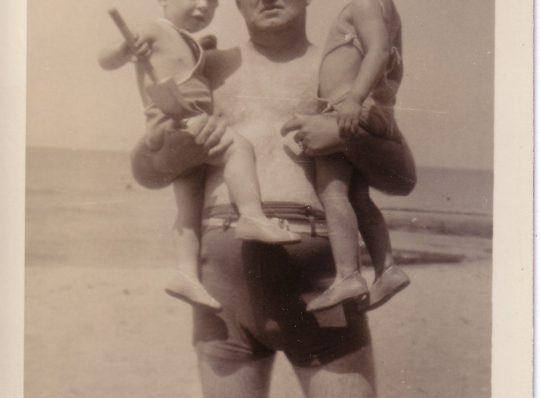By Martin R. Sabel
Taking care of an elderly parent can be a Jekyll and Hyde experience for family caregivers.
On the one hand providing care to an aging parent can be very rewarding. It brings the caregiver adult child and their parent closer together. On the other hand, increasing responsibilities ramp up caregiver stress and heightens tension within the family. Anxiety and worry increase when the caregiver is maintaining a job, caring for his or her own children, leads an active social life, and must travel to care for the elderly relative.
The tasks of caregiving - running errands, cooking, cleaning, home maintenance, taking your mom or dad to doctors - appointments often exacts both an emotional and physical toll on the caregiver. In fact the pressures of caregiving are so great that 58% of caregivers show symptoms of clinical depression.
Pay attention to how you are feeling. To be an effective caregiver to your aging parent means staying alert to the warning signs of excess stress. Some of the common signs of caregiver stress include:
- Feelings of sadness
- Moodiness
- Excessive crying
- Low energy
- Feeling isolate
- Difficulty sleeping
- Over and under eating
- Withdrawal from family and/or friends
- Excessive wait gain or loss
- Anger towards the care recipient or other family members
These signs are leading indicators of depression. Depression impacts not only your ability to care for someone else, it harms your mental and physical health, too. If you feel you need more help, you're not alone. According to a study by Home Instead, the national in-home, elderly companionship and home care company, three out of every ten family caregivers agree they could use more help.
Six Tips That Manage Stress and Avoid Caregiver Burnout
- Hire professional, non-medical caregiving assistance to give you important relief from the daily demands on you.
- Ask your family and friends to help. It's less expensive than hiring someone and you know the qualify of care your parent will get.
- Get informed about your elderly parents condition. Contact disease specific support groups. They offer a wealth of information to help you understand what is happening to your loved one and what to expect in the future. Most have active caregiver support groups that can help you better cope with increasing stress.
- Get your loved one assessed. A geriatric care manager can provide an accurate needs assessment of your loved one. Doing so extends your caregiving abilities, can conserve family resources, and often helps prevent the need of a nursing home.
- Learn stress-management exercises such as yoga or tai-chi. The exercise is good for your overall health and the emphasis on inner balance and relaxation is good for your mental well-being.
- Take a break. Caring for an elderly parent is a job. Getting away from the daily grind allows you to recharge yourself. Make arrangements to take a few days off and arrange for help with family and friends, volunteers from church or professional caregivers.
Caregiver burnout is avoidable. To manage caregiver stress requires proactively taking care of yourself while taking care of your aging parent.
With the right information, you can reduce caregiver stress, keep your life in balance, save money and get better care for your elderly parents. To help you reduce the anxiety of caring for an elderly parent, I invite you to instantly access my FREE Weekly Eldercare Advisor. You'll discover both practical caregiving strategies and important resources for taking care of elderly parents without bankrupting yourself emotionally or financially.
Article Source: http://EzineArticles.com/?expert=Martin_R._Sabel







3 Responses